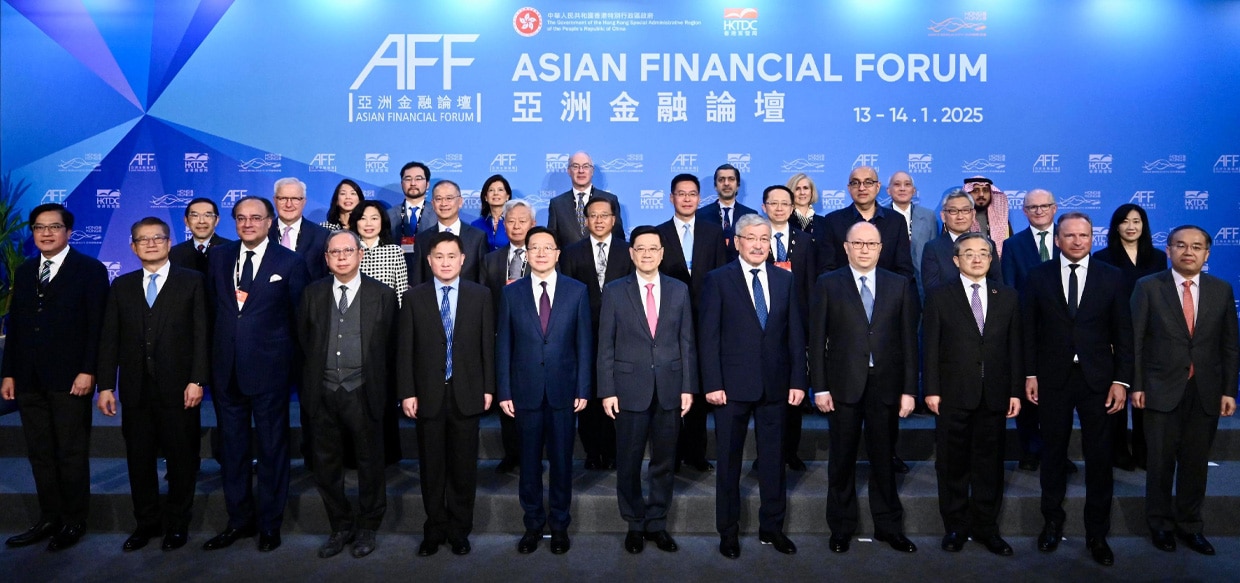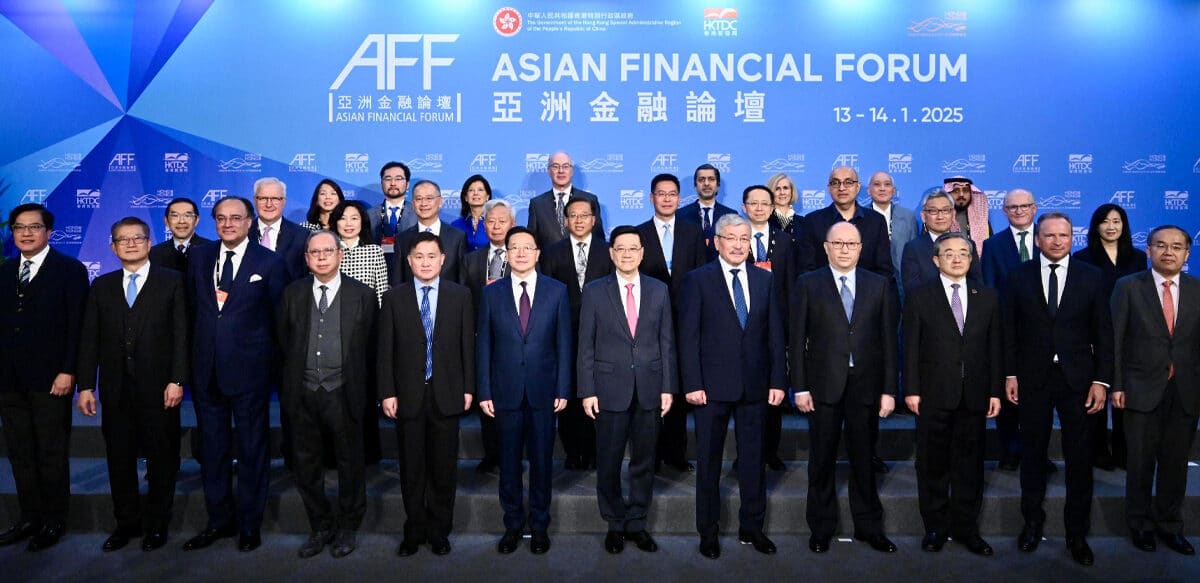
China Business Set for Pivotal Year of Risk and Reward

Navigating Reputation Minefields in 2025: Professional Services Sector
What We Learned at the Asian Financial Forum 2025
January 2025

By Hermen Chow, Associate Director for Sandpiper’s financial services and professional services practices, based in Hong Kong.
Last week Hong Kong hosted the 18th Asian Financial Forum (AFF), bringing together approximately 3,600 participants from around 50 countries and revealing some key trends in the financial world. Themed “Powering the Next Growth Engine”, the event featured over 130 prominent speakers who explored key economic and financial themes, focusing on innovations in finance and the growth potential of emerging markets.
Throughout the two-day event, we gained insights that shed light on how businesses can formulate effective communication strategies in today’s rapidly evolving landscape.
Hong Kong: China’s super-connector to the Middle East
Hong Kong continues to be a “super-connector” bridging mainland China with global markets. This term, first introduced during the Belt and Road Initiative discussions in 2017, underscores Hong Kong’s unique position in facilitating cross-border projects.
Developments at the AFF indicate an increasing focus on connections between Hong Kong and the Middle East, particularly in sectors such as asset and wealth management, family offices, and private equity. During the inaugural Gulf Cooperation Council (GCC) Chapter at the AFF, senior leaders from Hong Kong and the GCC held extensive discussions about collaborative opportunities across various sectors, including investment, finance, healthcare, infrastructure, and technology. Additionally, the Hong Kong Stock Exchange (HKEX) announced plans to establish an office in Riyadh, further solidifying its commitment to fostering ties with this burgeoning market.
To effectively use Hong Kong as a springboard for global business, companies and financial institutions should consider the following communication approaches:
- Use finance hubs as sounding boards: Hong Kong remains one of several key entrepots for trade and communication across Asia and the world. While taking advantage of the financial openness, connectivity, and low tax incentives in centres like Hong Kong, firms should also make use of the strong international media presence and communications opportunities on offer.
- Establish a local voice: For each market where they operate, firms need to introduce and maintain a brand identity that resonates with local people or at least with key stakeholders. This will usually involve local expertise and language, whether in the Middle East, China, or elsewhere.
Sustainability and Green Finance in Focus
Green finance was another significant theme at this year’s AFF, in line with the Hong Kong government’s initiatives to promote sustainable development.
Transformational finance and sustainable investment strategies were discussed during the sessions on how to achieve post-COP29 climate goals. China’s banking regulator has signalled openness to expanding green financing instruments in Hong Kong. This initiative resonated with Egypt’s finance minister Mohamed Maait, who expressed interest in exploring opportunities for issuing green bonds and other sustainable finance instruments across multiple currencies.
A major focus was on ESG communication strategies – here are our key takeaways:
- Proactive ESG messaging: Avoid “green hushing” by skilfully communicating ESG initiatives and backing them up with data.
- Maintain an ESG proof points database: Maintain a comprehensive database of ESG initiatives and track progress.
- Use third-party endorsements: Seek ratings from organisations like MSCI and communicate these endorsements regularly.
Geopolitical Uncertainty – Minimising Reputation Risk
The geopolitical landscape remains fraught with uncertainty. Joe Tsai, chairman of Alibaba, shared his insights about navigating these challenges as his company expands internationally amid an increasingly unfriendly geopolitical environment. Tsai said companies cannot control the policy direction of government leaders, but they can identify key risks and do their best to protect themselves.
Communication Strategies amid Geopolitical Uncertainty
Tsai’s words at the AFF capture the essence of communications amid geopolitical uncertainty: preparation and protection. To effectively manage risks associated with geopolitical uncertainties, businesses should prepare for reputation shocks:
- Scenario Planning: Regularly conduct scenario planning exercises to prepare for potential risks.
- Crisis Playbook Development: Have crisis communication plans ready along with holding statements for swift responses.
- Response Team Formation: Establish a dedicated team responsible for managing communications during crises.
- Transparent Communication: Maintain open lines of communication with investors, clients, and business partners regarding geopolitical developments that may impact business operations.
- Monitoring and Compliance: Monitor relevant stakeholders, authorities and legislative organisations to ensure full compliance under the given statutory framework.
- Stakeholder engagement: Identify stakeholders and engage with them proactively to build trust and mitigate risk.
AFF 2025 and beyond – adapting to a new era
The 18th Asian Financial Forum underscored critical trends shaping the future of finance and business strategy. Geopolitical shifts, sustainability challenges, and technological developments are forcing financial hubs like Hong Kong, and the global financial sector as a whole, to adopt new strategies to defend their reputations in good times and bad.





